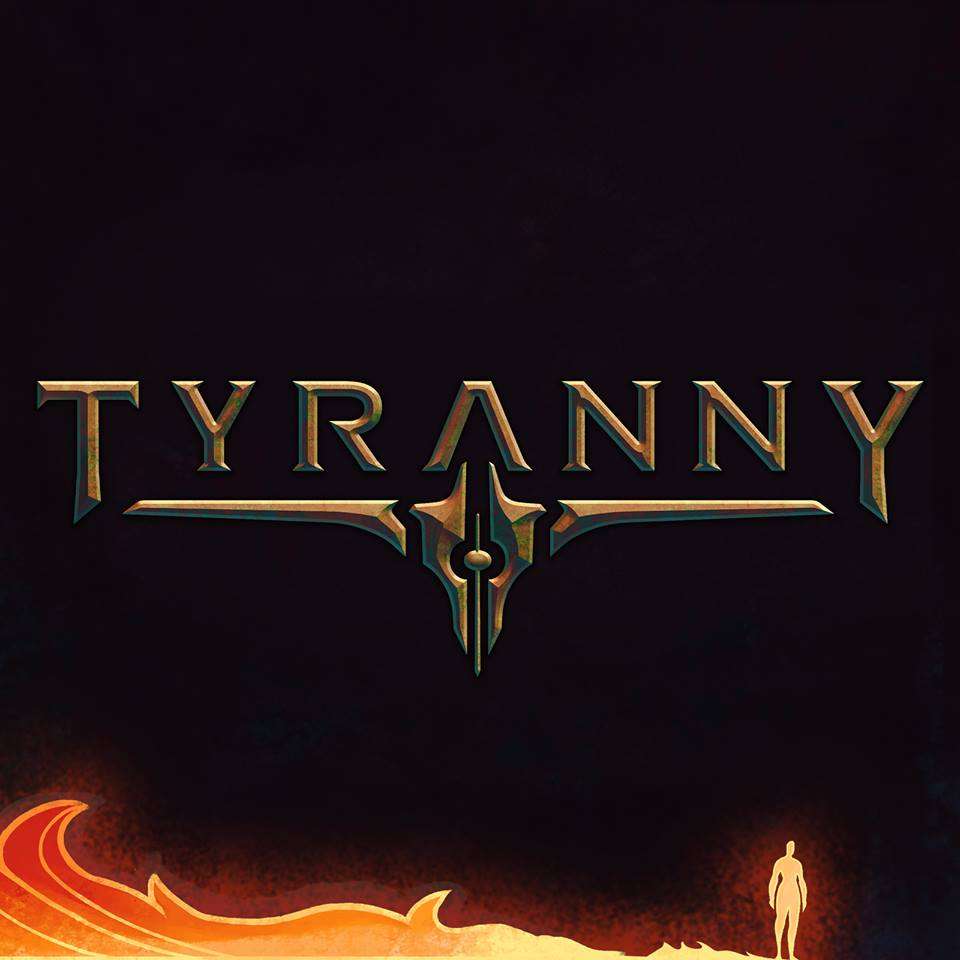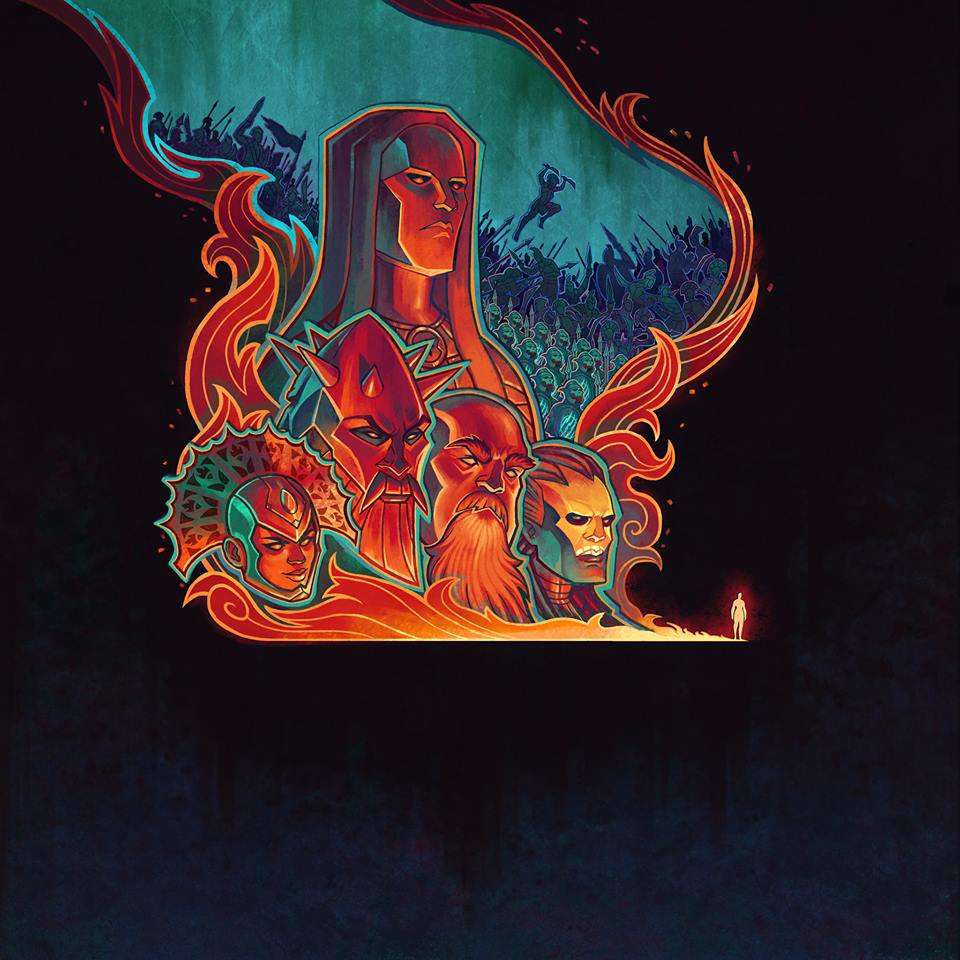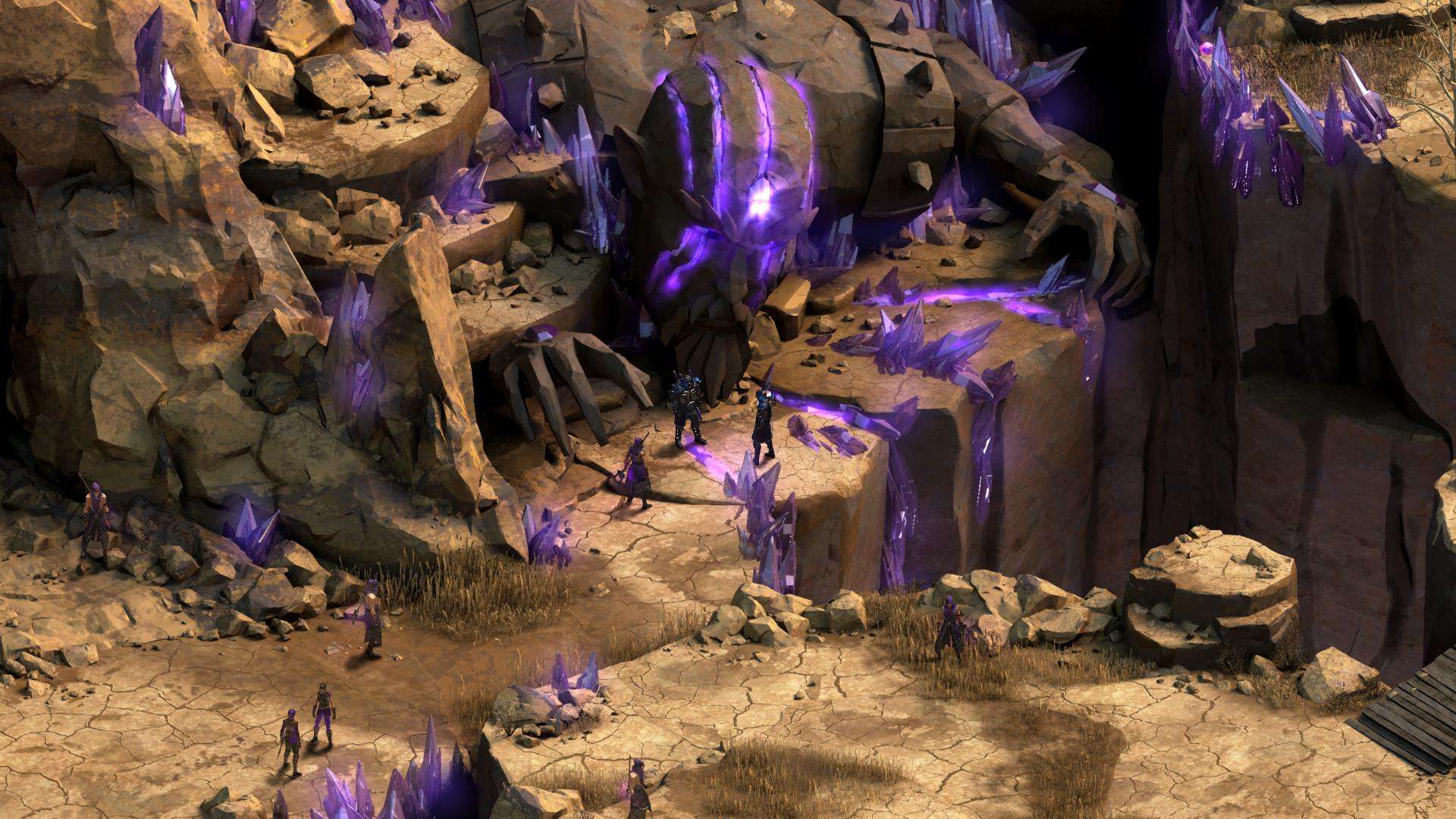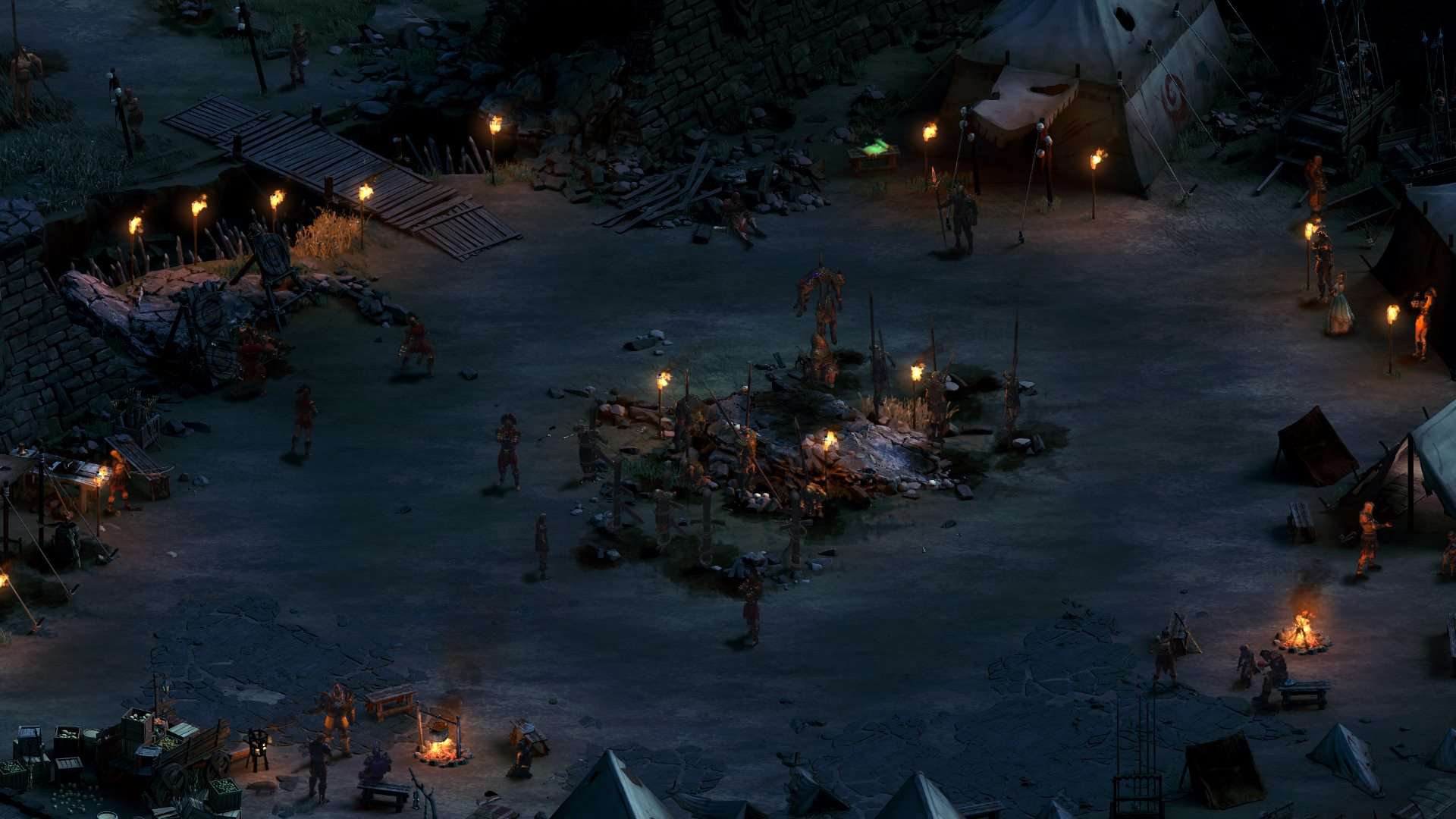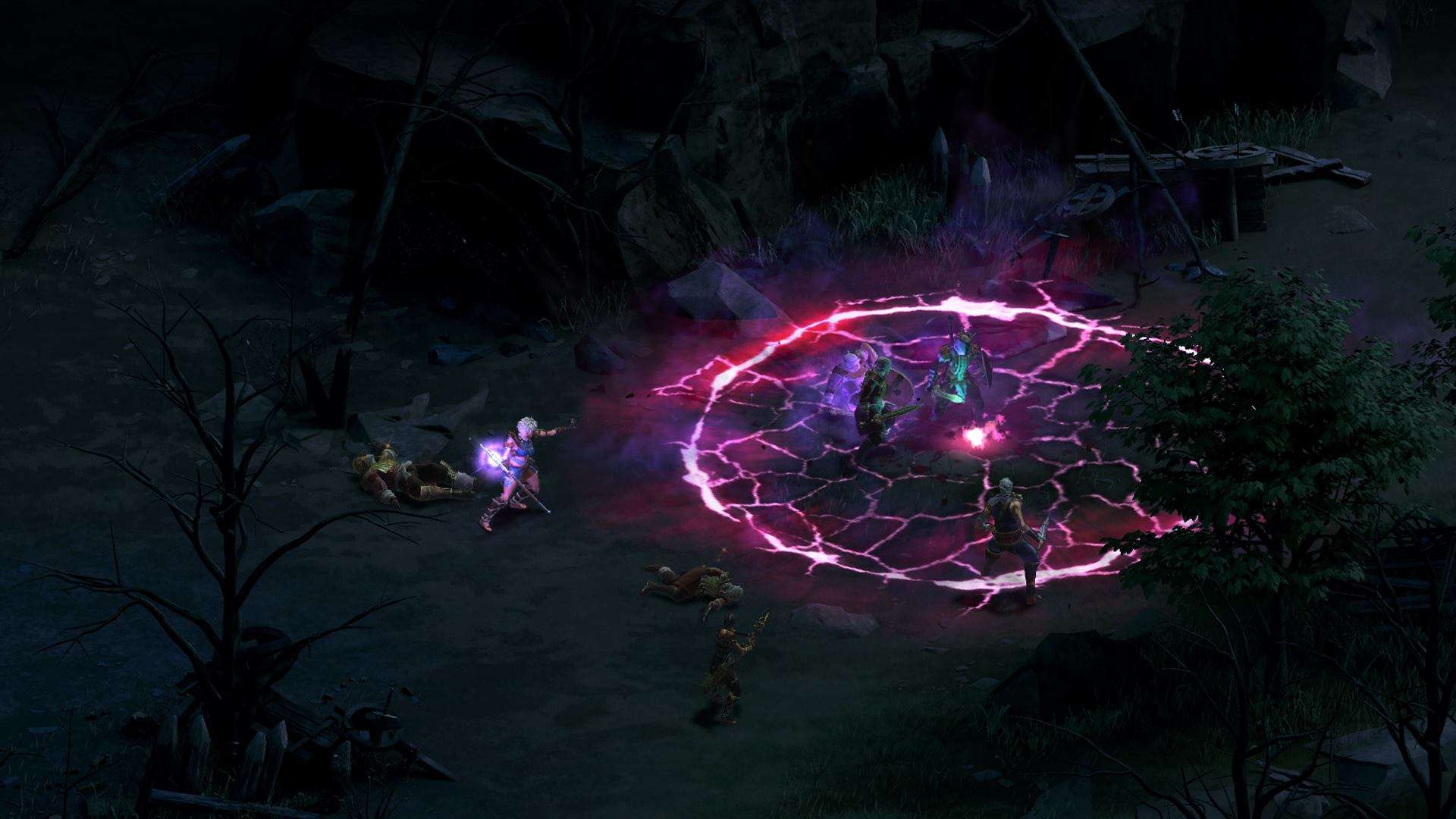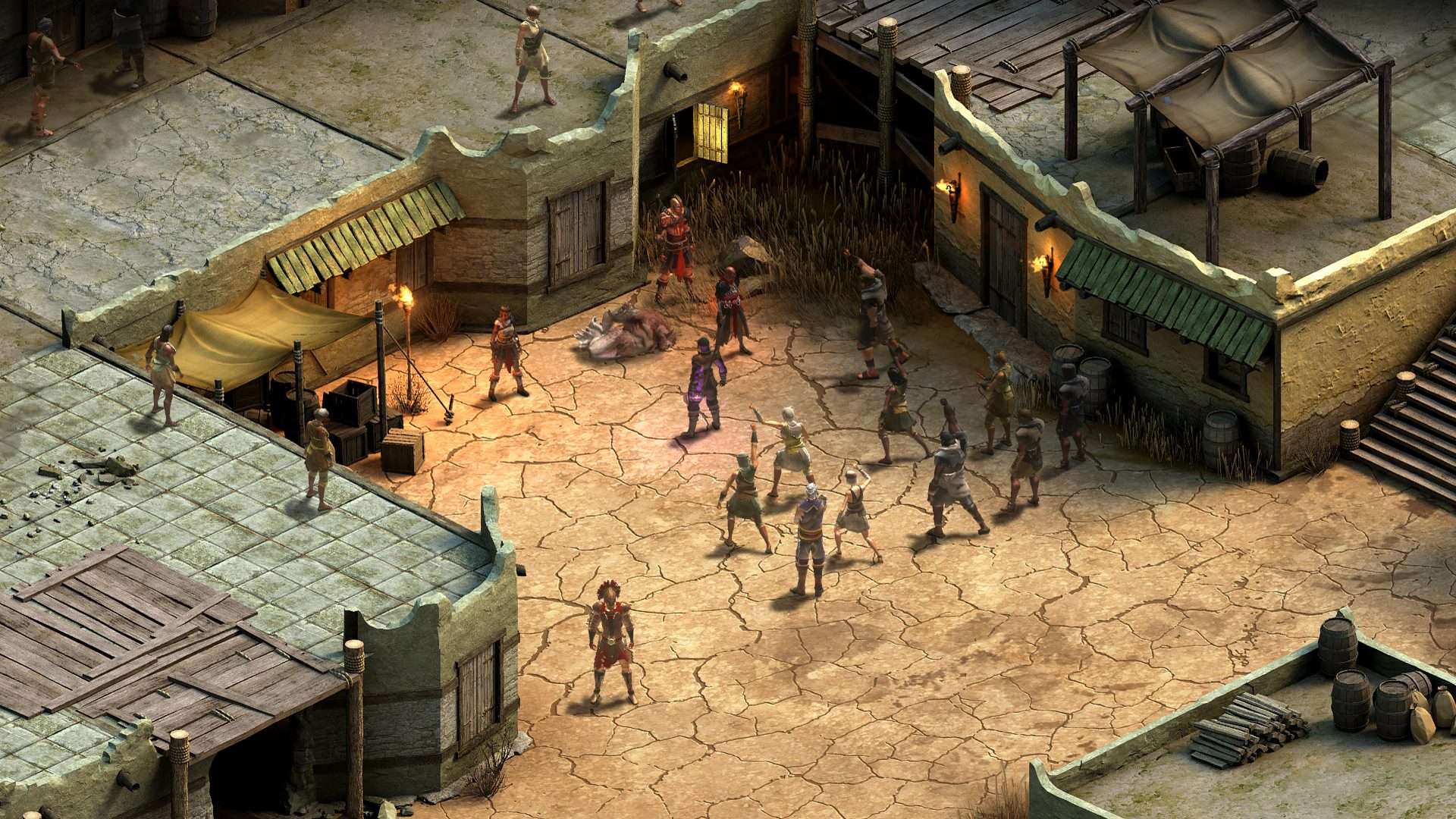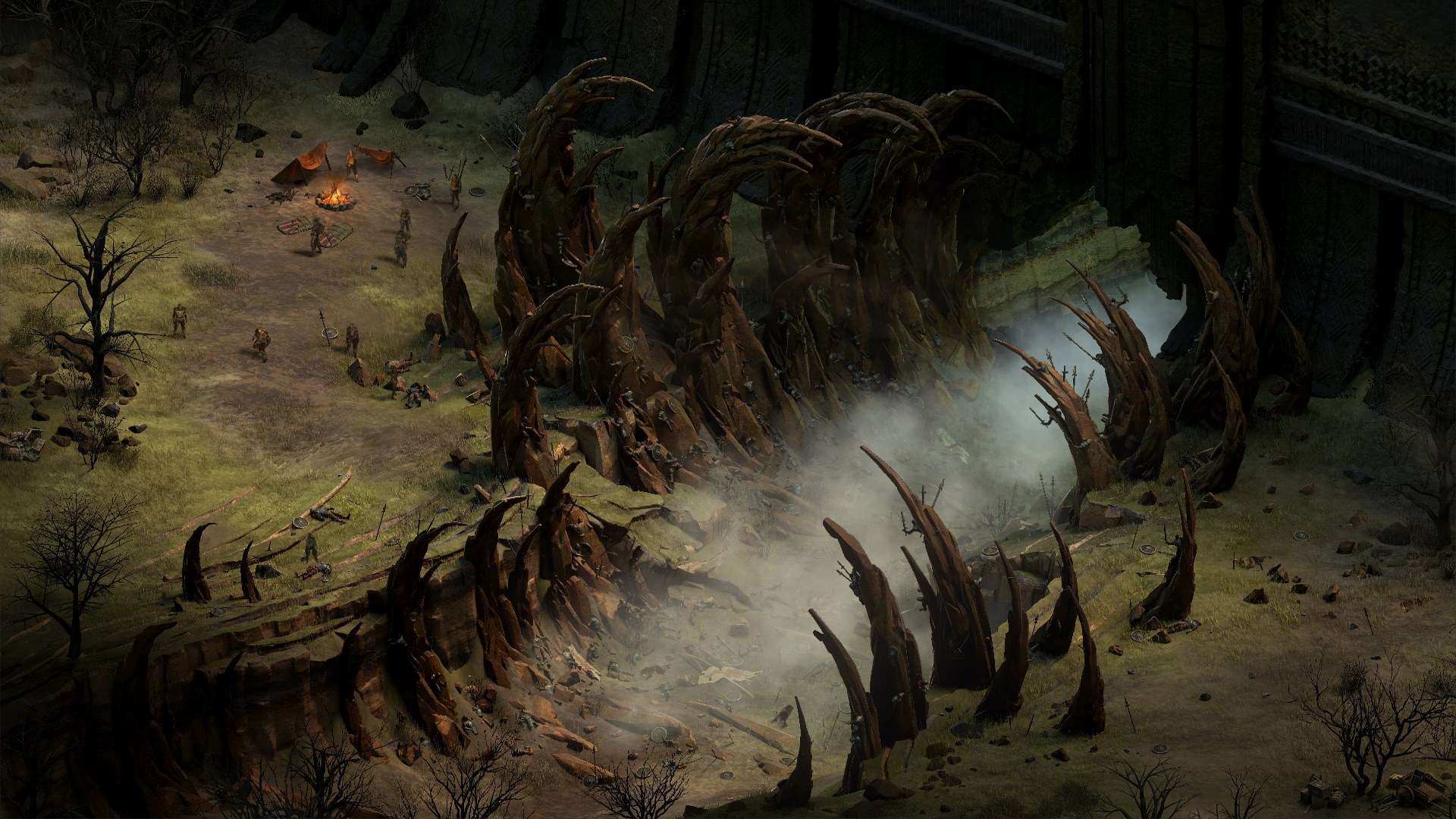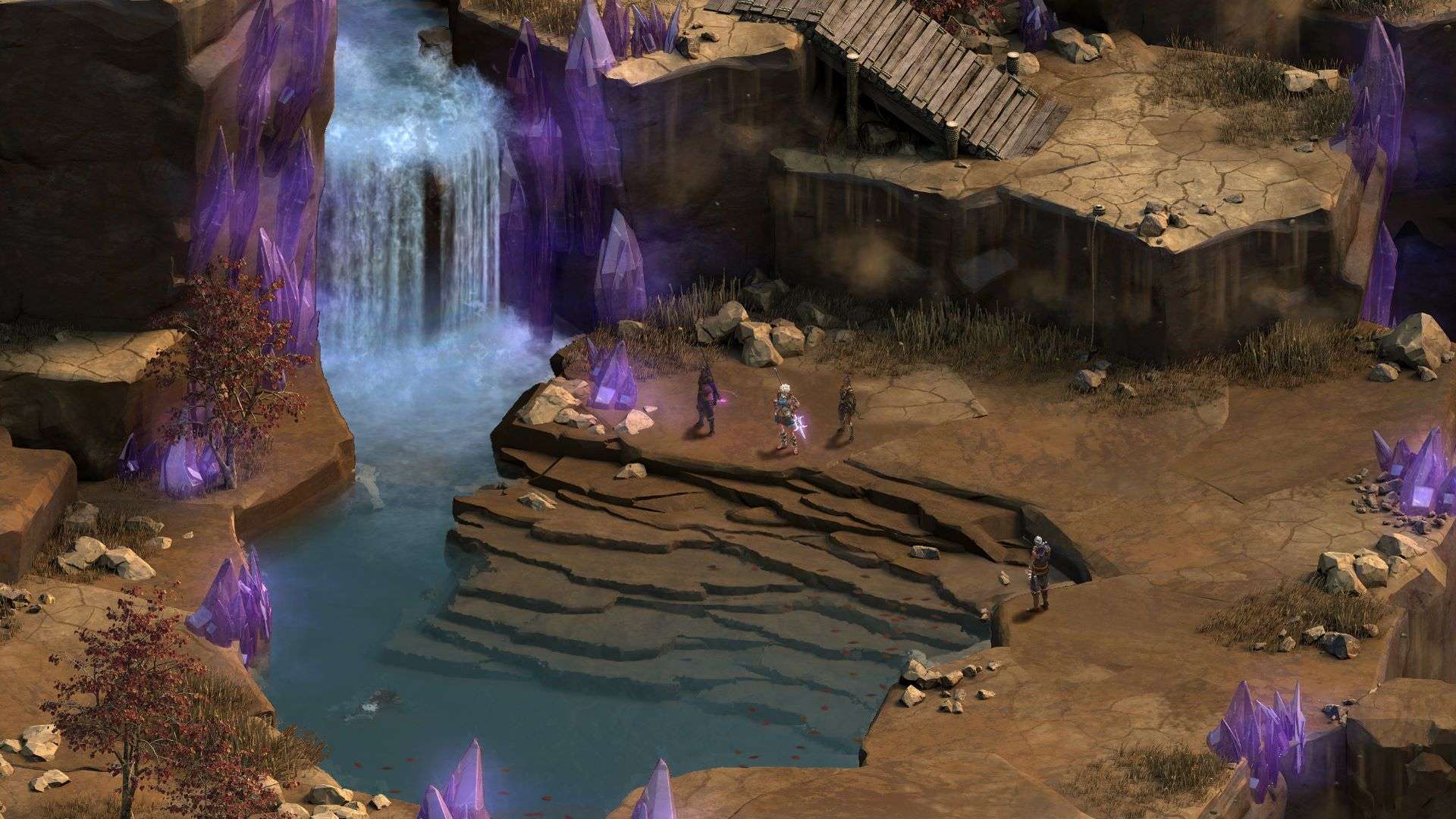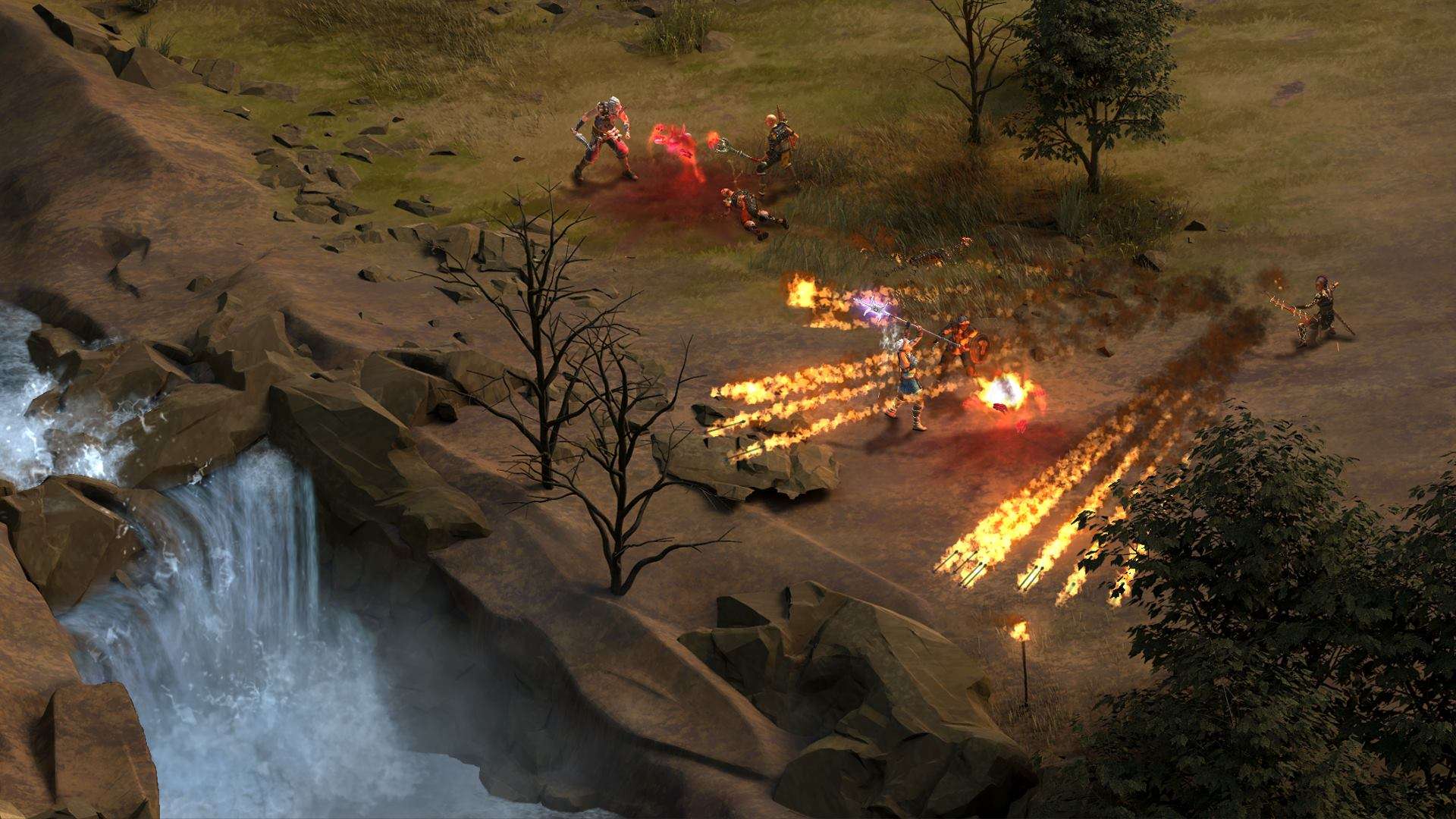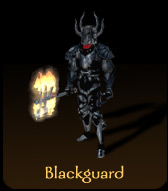Tyranny is a shorter, tighter, stranger Pillars of Eternity as played by the bad guys
What to do as Obsidian once you’ve finished up your eagerly anticipated, massively funded, hugely successful fantasy RPG? Well, do it again, but turn it entirely on its head. Where Pillars of Eternity is dozens of hours long, Tyranny is planned as a leaner experience. Where Pillars had a standard selection of spell-casting, armour-wearing or dagger-wielding classes, Tyranny lets you build your own. While in the former you play as, at least in theory, a hero of the people come from humble origins, Tyranny casts you as the inquisitor to an evil overlord who has already conquered the land, a promotion you earned after serving as one of his generals. Everything you might assume about a high-fantasy RPG is changed - but under all that it’s still the same familiar combat engine, the same party-based questing, and the near-infinite paths of dialogue trees, optional engagements and decision making.
For more along those lines, here’s the best RPGs ever made.
The shift is most immediately obvious in the art style. While Tyranny has that same isometric angle and a familiar interface, both the way the world is conveyed as well as its actual setting are very different. It’s more stylised, pushing out of the semi-realistic medieval Europe that has served as fantasy’s home for so long, towards bigger weapons, flashier magic and an early Iron Age tech level.
“We thought [Pillars] was a really gorgeous game but we wanted to go in a different direction on this one,” explains lead producer Matthew Singh. “We took a stylised approach to both our characters and our environments and gave it more of a mediterranean feel, which we thought would give us a unique world. In addition, we wanted to get away from the settings that you're used to so instead we actually [put] it towards the end of the Bronze Age and the beginning of the Iron Age. It was a very brutal time and it helps us tell the stories that we want to about human greed and corruption, so we thought it was a cool place to do it.”
In effect, this leaves you with an ostensibly similar-looking game, but with totally different details. Nowhere is this more true than in combat. With all concept of standard classes done away with and a sprinkling of more high-intensity action, almost nothing familiar remains beyond the basic setup of a few warriors viewed from above. You improve skills by using them and that feeds directly into levelling up your character, akin to the Elder Scrolls games. This can go in any and as many directions as you like, so you’re equally as capable of making that classic glass cannon, robe-wearing mage as you are a battle-hardened, shield-wielding cleric or something weirder.
“We've taken the core combat system [from] Pillars of Eternity and built on top of it in interesting ways,” explains Singh of this more advanced system. “We talked about how people really enjoyed building their relationships with their companions in our games and we wondered if we could figure out a way to bring that into combat. To do that we've introduced some new abilities that we're calling companion combos, these are some pretty devastating [moves] that you can get to either open combat in an effective way or change the tide of battle.
“They have you and one of your companions doing something together. You gain these abilities by building reputation, building your relationships with these companions and even if you have a relationship where your companion loves you or despises you, you get different abilities. [There’s] one called Death From Above, with this ability the player channels energy [and] punches the ground, launching their companion into the air and while they're in the air they have the opportunity to rain arrows from above.”
These combo abilities will exist between a huge variety of possible companions and all the different permutations of feeling. The example I saw did some fairly extreme damage, and they’re definitely pitching towards these being one-use per combat, rather than spammable skills. However, it’s not only relationships with individuals that will govern what skills you have access to. As part of the classless system Obsidian have built, factions will bestow skills and abilities as you improve or sacrifice reputation with them. In our demo, we’re introduced to a triplicate of opposed peoples - the townsfolk of Plainsgate, a conquered region that was once lush farmland, a regiment of the army called the Scarlet Chorus and the race of Beastmen that cohabit this area of the world.
It’s a complex series of relationships, and we see it play out in two vastly different ways. In the first, we’ve become good mates with the Scarlet Chorus. They like this incarnation of the Fatebinder - the in-universe name for the judge, jury and executioner role you take, who Singh likens to Judge Dredd - and want help in recruiting one of the Beastmen, improving the relationship between the two factions and continuing a quest chain focused on unlocking the magic of the land. The villagers, meanwhile, want to kill the Beastman for trespassing and generally not being a human.
There’s immediately a huge number of ways to solve this. We can try to explain to the townspeople why we need to take the Beastman. We can kill him for their favour and piss off our army mates. Our authority as an agent of Kyros, the aforementioned top nasty man, is unquestioned - they might not like us, become aggressive even, but they will do what we ask up until we actively attack them. In this version, we make the Scarlet Chorus very happy by freeing the Beastman, but taking the blame from the villagers ourselves. It makes the commoners even angrier at us, but doesn’t affect their relationship with the army. A (relatively) happy ending.
The scene is reset with a load. This time not only are our relationships different, but the land itself is totally altered. Due to some decision made in this save file, the same location of a dusty village is rent through with a massive crevasse of magic energy. This comes from one of Tyranny’s most interesting additions to the genre: when you create a character, you also create the world they inhabit and history they enacted. How brutal was Kyros’ army as it marched the land? What exactly were you in charge of? Singh puts it like this:
“As part of the character creation system we want you to decide how those events played out and depending on the choices you make there you're actually shaping the world that you're going to play in, you'll get a very different experience. We've made different choices through the conquest of the world that has actually heightened the magic here even further, so much so that the town of Plainsgate has actually been split in two. A giant ravine has cracked through the land, the earthquakes are more violent and parts of the village have fallen in, so by the decision we've made we have actually changed the world in a meaningful way.”
This also means the oh-so-friendly Scarlet Chorus no longer like us. This particular group are hostile but unprepared to fight, and still respect our position and power, meaning we can call their bluff on attacking us with a little intimidation, making them retreat. It wouldn’t be a modern, western RPG without a nice bit of chatting to dissuade combat, but Tyranny goes about it a little differently. If you manage to threaten, convince or otherwise dissuade opponents from active, killy combat, you’ll still get a collection of combat skill upgrades, as well as any ones from the social abilities you used to avoid.
Singh says that this is to avoid problems they’ve seen in other classless systems. “We want you to play the game the way you want, make the interesting decisions you find in this game and not feel penalized for it. [Otherwise], you may feel that if you're not in combat then you're no longer growing your character, which might discourage you from making interesting choices and we didn't want that.”
Once the Fatebinder arrives at the same imprisoned Beastman from before, the townspeople are still angry that he exists and the Scarlet Chorus still want to recruit him, but they also attack us immediately while the villagefolk scatter, a little braver than their comrades from before. Between the character combo mentioned earlier and a new magic system that allows for unique spell creation, it’s a one-sided affair. Despite a main character focused on sword and shield, our protagonist is still capable of unleashing a massive ball of lightning, custom-made to take out large groups.
In the end the Beastman dies, killed by our hand to help out a fourth faction we’re aligned with in this playthrough. Singh says that this means we’ll experience a whole different follow-up to this and many other areas of the game. This is part of why a single campaign might be a bit shorter than you would expect from an RPG in 2016. Instead, your run will likely be vastly different to mine, and your second as different again.
“Our testing team is certainly upset with us,” laughs Singh. “We've built this to be a very reactive world and we want it to be meaningful in that way, and if you want you can play through this game multiple times and start seeing different aspects of the world that you may not have before. We did want to focus on a game people could actually complete.”
The plan is to get Tyranny out the door before the end of 2016. The promise is a world where every decision is massive, and you won’t feel limited until you’ve explored it many times. It wants to be morally grey, casting you as at best an ex-bad guy and challenging you to make your own path. While it may not be 80 hours long, it’s just as ambitious - and promising the kind of multiple-paths and choose-your-own-adventure stuff we’ve been after for years. I hope they do go all in on the multiple routes and create a lean, entertaining RPG that lets you play how you like but wraps it all up in a manageable timeframe - shorter games aren’t better, but this sounds like something new and exciting in a world where there’s plenty for the time-rich to chew on.
